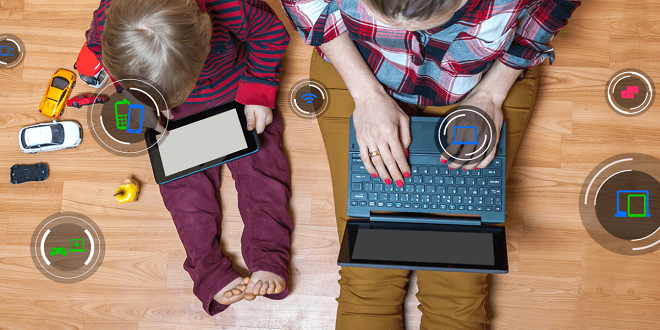Three ways to make sure your child is safe on social media

Young people can now connect faster with their friends via the internet and digital environment. They no longer need to meet face-to-face. Social networks have been growing at an increasing rate since the pandemic. They are now accessible at an ever younger age.
You can still learn how you can open a snap, but they won’t know so you feel you can protect them and keep them safe. The best way to protect minors in digital space is to educate them about the risks and have a meaningful conversation with them.
It is obvious that anyone who exposes their personal information will be subject to an immediate invasion of privacy. It is important for your children to understand that sharing personal details can result in someone impersonating you by using their photos to create a fake profile. An adult can also pretend to be their age and blackmail them with intimate content.
Here are some things to keep an eye on
Below is a list of safe ways your children can benefit from technology.
Use at your earliest
It is important to explain to children that Facebook has a policy that restricts access to people over 13 years old. It is therefore not recommended to use Facebook if you are below this age.
Social networks for children’s content
Celebrities have claimed that children shouldn’t use social media. According to some studies by the University of Sheffield, children are more likely to be bullied if they spend more time on social media. The networks magnify the problems of off-line life.
Today, however, only 12% of children aged 9-10 have a profile on social media. This percentage increases to 75% for those 13-14 years old.
This tendency is not preventable, but it can be monitored and controlled. It is not as safe as it seems, but it is important to monitor what your children do. Parents need to be aware of what happens when their children connect to the internet.
Parental supervision
It is a great way to increase awareness. Teach them to think before you click. They can take actions that lead to inappropriate sites or download viruses that could infect all of your computers. Third parties can also be able to gain valuable, sensitive and private information through them.
We must also be aware of what content they are consuming: apps, websites, games, etc., as well as the communities they belong to.
It is important to discuss the potential risks associated with sharing, posting, and displaying information, images, and videos on social media.
You can also get security tools
Most browsers offer security features that will keep your family safe. However, you can also use innovative parental and family web security tools.
Software solutions that are robust will protect your computer from malware, digital threats that could steal financial or personal information, as well as phishing attempts.
The immersion of young people into new technologies is happening at an ever younger age, so child safety is essential when it involves social networks.
Since no one can avoid it, parents and educators have a responsibility to ensure that children are able to take full advantage of their potential benefits.




